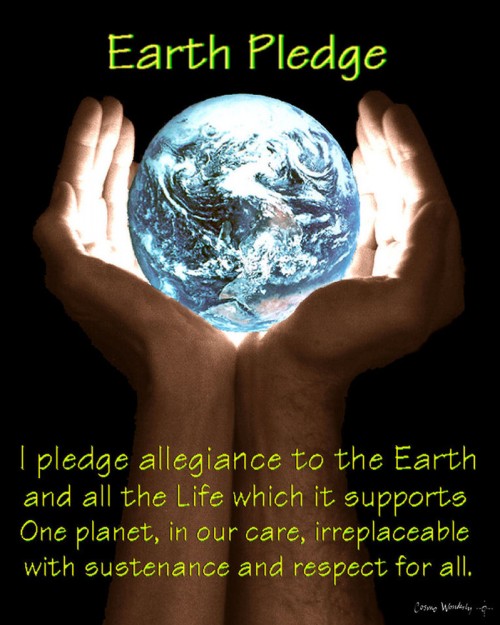Nature has not always existed. It is not found in the depths of the forest, in the heart of the cougar or in the songs of the pygmies; it is found in the philosophies and image constructions of civilized human beings. Seemingly contradictory strands are woven together creating nature as an ideological construct that serves to domesticate us, to suppress and channel our expressions of wildness.
Not long time ago, I’ve came across one of the rare anarchistic magazines from the region, with an article titled “Nature as spectacle: Nature and Wilderness as a product of capitalism”, that took concept of nature into a whole new category; the socially constructed category. However, at the very beginning I’d like to make clear it’s not the existence of nature and biodiversity that’s in question here, but rather the collective categorization and relation toward nature. Namely, taking into consideration human’s inherited need for categorization of everything around him, we will come to a conclusion that, for modern men, nature stands as one of the most useful categories of civilization used for restraining the wild side of an individual and for achieving his self-identification as a civilized social being.

The article argues that the Old Testament of the Bible saw nature as “the evil wilderness, a place of desolation inhabited by ferocious and poisonous beasts, malicious demons and the mad.” Such perception of nature created a fear in men, keeping them inside city walls, while everyone outside the community was considered to be in dangerous area. The very same perception contributed to forming a dichotomy between “human” and “nature” that keeps individuals from living wildly, that is, in terms of their desires. Similar argument was formed by John Zerzan in his work “Beginning of Time, End of Time” in 1999. Although, as we read from the title, he was more concerned with discussing time, Zerzan still points out one common thing for nature and time- neither of them existed before man’s break off from them. Reification of distancing and its emphasis, or as Zerzan calls it, the Fall, was the beginning of alienation and history.
Even though the concept of alienations isn’t a recent discovery, since we can find it in works by Russo, Hegel, Marx, etc., the genuine alienation from nature is almost non-existent in modern philosophies. In order to keep human society within the system of social values and morality, the life outside of civilization is often portrayed as a fierce battle for survival, instead as the expression of an individual freedom.

The mystical anarchism of the Free Spirit in England pursued the state of nature, but here I will use an example of radical mystic Suso, of Cologne:
‘Whence have you come?’ The Image answers ‘I come from nowhere.’
‘Tell me, what are you?’ ‘I am not.
‘What do you wish?’ ‘I do not wish.’
‘This is a miracle! Tell me, what is your name?’ T am called Nameless Wildness.’
‘Where does your insight lead to?’ ‘To untrammelled freedom.’
‘Tell me, what do you call untrammelled freedom?’
‘When a man lives according to all his caprices without distinguishing between God and himself, and without looking before or after….’
I will keep on the concept of time just for a while to mention North-American tribe Pawnee which believes the life has it’s rhythm but not a progression. Pawnee tribe, but also similar tribal people, in their culture, tradition and language don’t show any references to birthdays, or dates in general. They don’t have the concept of time or nature as isolated ideas because they believe such alienation of consciousness would revoke their current state of being in harmony with streams and flows of the natural world.

The following paragraph is an excerpt from the original article from the beginning of the text. Author argues that in commodity culture, “nature” recuperates the desire for wild adventure, for life free from domestication, by selling us its image. The subliminal concept of the “evil wilderness” gives venturing into the woods a tang of risks that appeal to the adventurous and the rebellious. It also reinforces the idea that we don’t really belong there, thus selling us the numerous products deemed necessary for incursions into wild places. The positive concept of nature makes us feel that we must experience wild places (not realizing that the concepts we’ve fed into us will create what we experience at least as much as our actual surroundings). In this way, civilization successfully recuperates even those areas it seems not to touch directly, transforming them into “nature,” into “wilderness,” into aspects of the spectacle which keep us domesticated.*
At the very end, I will evoke “the evil wilderness” which needs to stay “evil” in order to prevail. That is the reason why shows about nature always include scenes of predation, warnings about dangerous animals or poisonous plants. “Wilderness” is presented as daily adventure or short-term escape from everyday life where we can keep only for short, until we head back toward the safe harbors of civilization, where we’ll once again be tucked in with social norms and constructs. Thereby, since everything in the Universe is in balance, or at least tends to be, so is the need of civilization to prevail at the expense of its inverted concept, because without “wilderness”, men’s material progress and development would be as it essentially is, irrelevant.
*Magazine “Anarchy: A Journal of Desire Armed” #29, 1991
For P.U.L.S.E World: Adnan Smajić

You must be logged in to post a comment Login